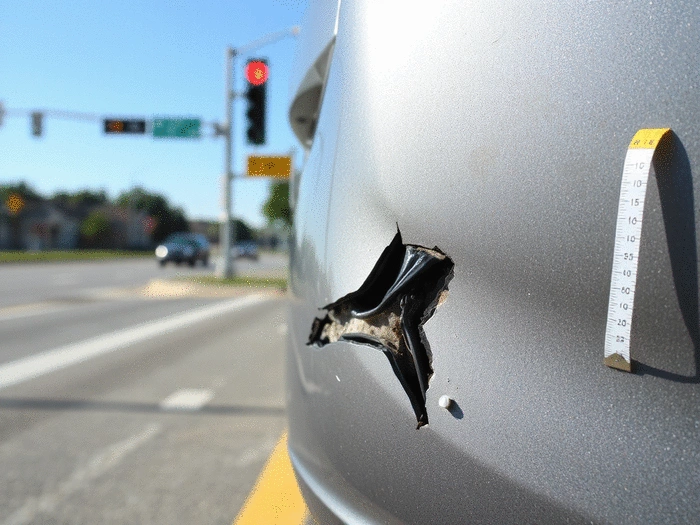100% Fault
No compensation is received if you are deemed fully at fault.
Unlock your FREE 'Quick-Start Guide to No Win No Fee Claims' and demystify the legal process.
Posted on: 2025-10-13
By: Sarah Thompson
Understanding your rights after an accident can be daunting, especially when you're worried about sharing fault. This guide breaks down essential concepts that can empower you during the claims process.
This visual illustrates how the percentage of fault influences the compensation amount in accident claims.
No compensation is received if you are deemed fully at fault.
Compensation is halved. If the claim is worth £10,000, you receive £5,000.
If your claim is worth £10,000, your compensation will be £7,000.
Higher compensation may be possible depending on the circumstances.
Accidents can be overwhelming, especially when you think you might share some responsibility. At Solicitors No Win No Fee, we understand how confusing it can be to navigate the claims process when you’re partly at fault. Let's break down some important concepts that can help clarify your situation. For more information on how we can assist you, consider understanding no win no fee claims.
When it comes to accident claims, two key concepts often arise: split liability and contributory negligence. Split liability refers to situations where both parties involved in an accident share responsibility for the incident. For example, if you were texting while driving and another driver was speeding, both of you may be considered at fault. On the other hand, contributory negligence implies that your actions contributed to the accident. This is crucial when assessing claims as it determines how compensation is calculated based on the degree of fault.
Understanding these terms is vital to navigating your accident claim, as they directly influence your entitlement to compensation.
The percentage of fault assigned to each party can greatly affect how much compensation you're entitled to receive. For instance, if you're deemed to be 30% at fault for an accident, your compensation might be reduced by that percentage. This means if your claim is worth £10,000, you might only receive £7,000. It’s essential to fully grasp how these fault percentages work to better understand your potential compensation.
By being aware of how fault influences your compensation amounts, you can approach your claim with greater confidence and clarity.
In the UK, the principle of comparative fault allows for claims to be adjusted based on each party's level of negligence. This means that even if you're partially at fault, you can still pursue a claim. However, your compensation will reflect your degree of fault. For example, if a pedestrian crosses the street without looking and is hit by a car, both parties may share some blame. Understanding this concept helps clarify how claims are resolved and underscores the importance of gathering evidence to support your position. For insights on navigating various types of incidents, a guide to road traffic claims can be very helpful.
This principle ensures that you have the opportunity to seek compensation, regardless of your share of the blame.
Every accident claim operates within a legal framework that outlines the necessary criteria to pursue a claim, even when you might share some fault. Knowing these legal requirements can empower you to take the next steps with confidence.
To be eligible for a claim, certain legal criteria must be met, including:
Understanding these elements is critical, as they lay the groundwork for your claim. If you can demonstrate these factors effectively, you’ll have a stronger case to support your pursuit of compensation.
Let’s look at some common scenarios involving shared fault, particularly in pedestrian and vehicle accidents:
Being aware of these common situations can prepare you for what to expect in your claim process. Each circumstance offers unique challenges but also opportunities for compensation.
If you find yourself in an accident where fault is shared, it's crucial to know your legal rights. Even if you are partly at fault, you are still entitled to seek compensation. This includes the right to claim for:
At Solicitors No Win No Fee, we're dedicated to ensuring you understand your rights and how they apply in shared fault situations. Navigating this legal landscape can be daunting, but with the right guidance, you can pursue a claim effectively and confidently. For further details on how evidence strengthens your case, it's worth reading about why evidence matters in accident claims.
Did you know? It's essential to gather all relevant evidence immediately after an accident, even if you believe you may share some fault. This includes taking photos, collecting witness statements, and obtaining police reports. The more comprehensive your evidence, the stronger your claim will be, helping to clarify your level of responsibility and potentially maximize your compensation.
When you make a claim with partial fault, it can have long-lasting effects on your insurance premiums and driving record. Insurers often adjust your rates based on the perceived risk you pose as a driver. This means that even if you weren’t fully at fault, your insurance provider may still categorize you as a higher risk, leading to increased premiums.
Here are some key points to consider regarding how your claim can affect your insurance:
As someone who has navigated the complexities of claims myself, I understand the frustration of dealing with rising costs. It’s essential to be proactive about understanding these implications and explore ways to mitigate them.
Medical bills can significantly influence the financial compensation you may receive after an accident claim, especially when you share some responsibility. Accurately documenting your medical expenses is crucial. Insurers will closely evaluate these costs to determine the payout you’re entitled to.
Here are some factors to keep in mind concerning medical bills and your compensation:
In my experience, many individuals overlook the importance of comprehensive documentation. It’s vital to consult with a legal professional, like those at Solicitors No Win No Fee, who can guide you in ensuring all relevant expenses are accurately represented.
Here is a quick recap of the important points discussed in the article:

 Did you know that many tenants are unaware of their rights regarding housing disrepair? Understandin
Did you know that many tenants are unaware of their rights regarding housing disrepair? Understandin
 In today's uncertain job market, knowing your rights when it comes to termination is more crucial th
In today's uncertain job market, knowing your rights when it comes to termination is more crucial th
 In the world of serious injury claims, navigating financial challenges can be daunting. Interim paym
In the world of serious injury claims, navigating financial challenges can be daunting. Interim paym